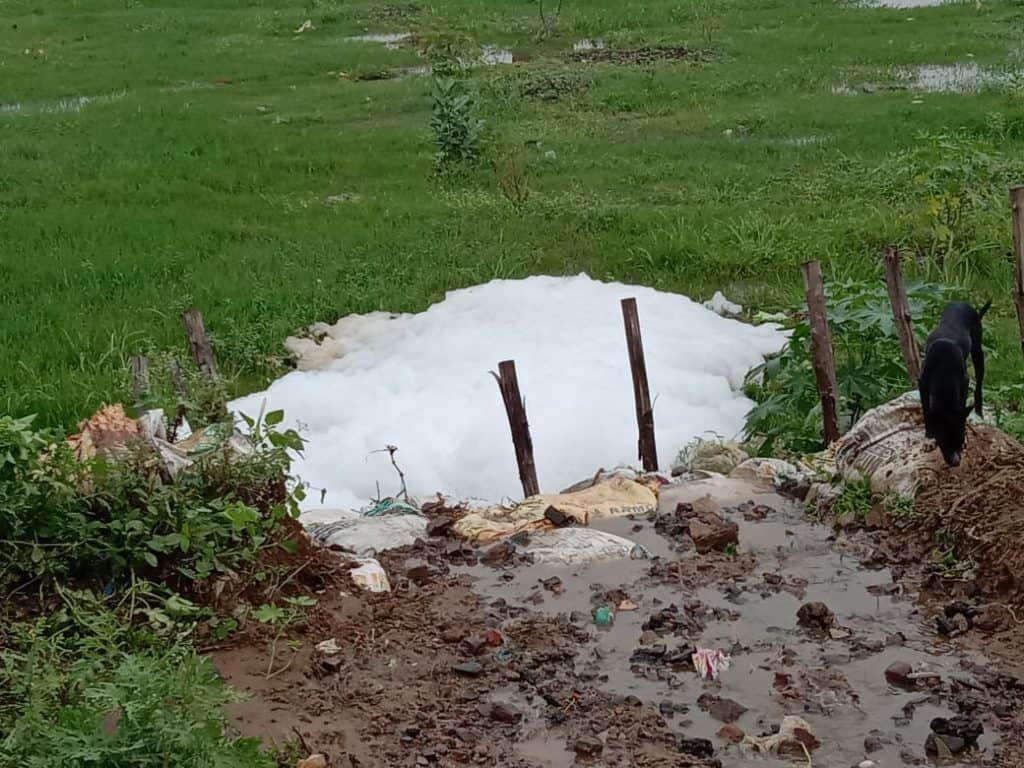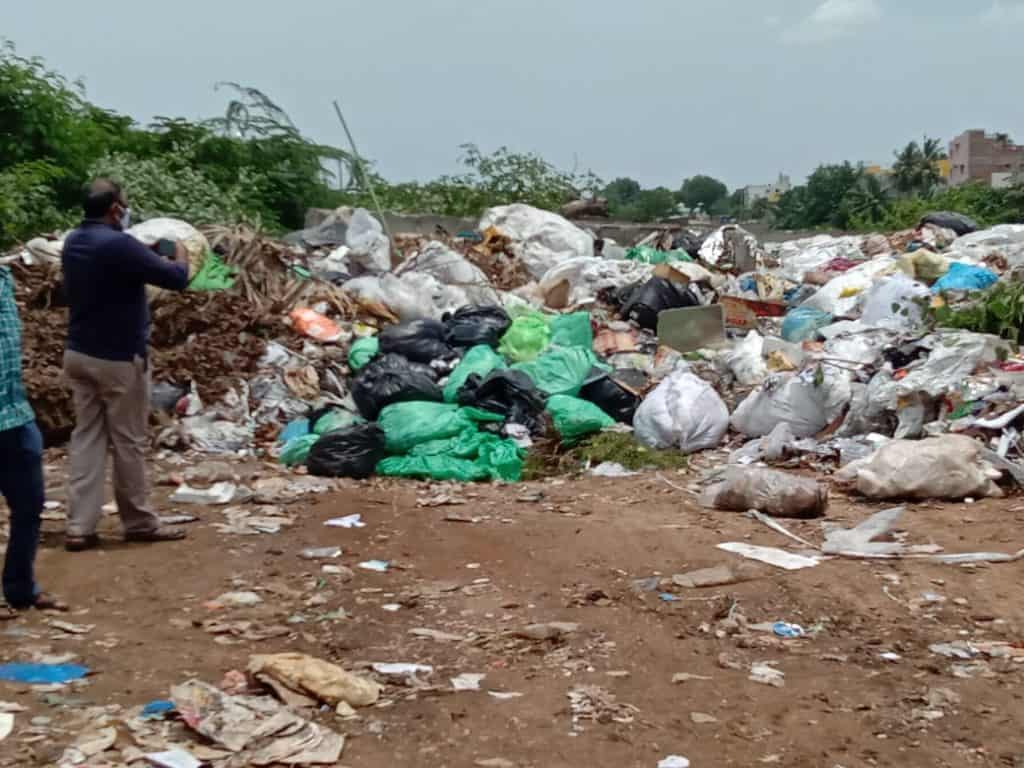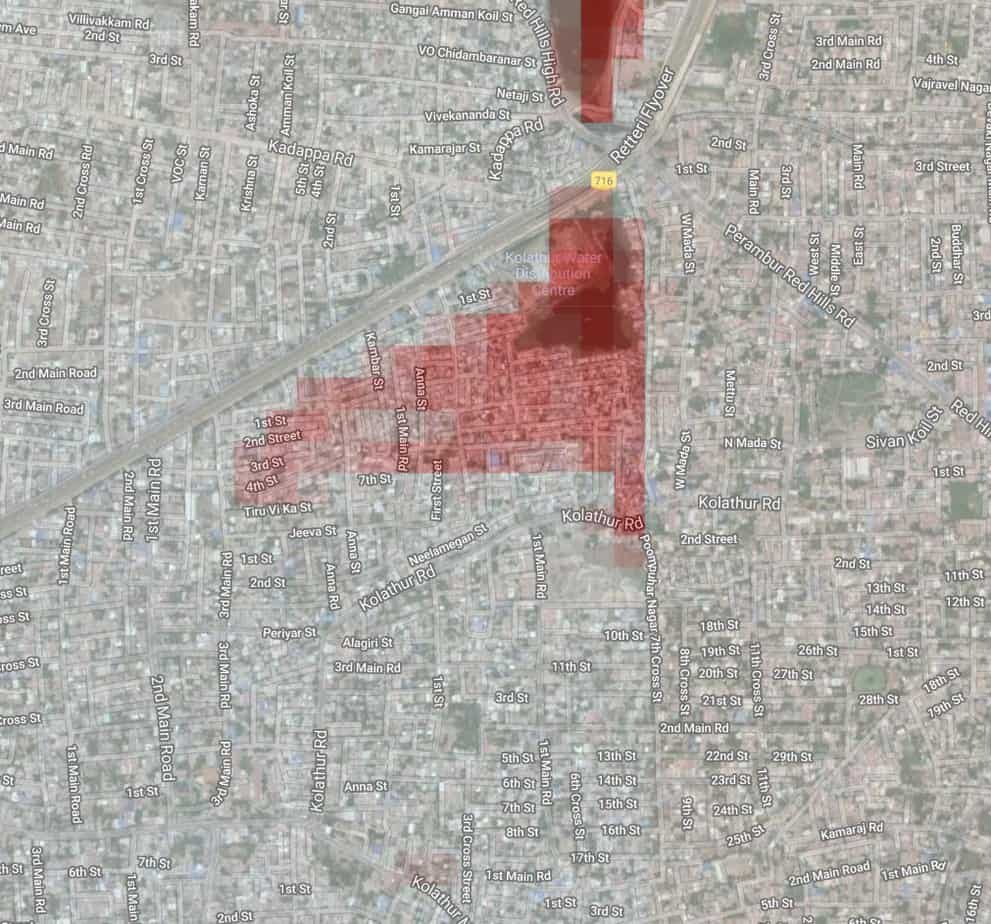As the city woke up to heavy rainfall a fortnight ago, Korattur lake once again faced the threat of a fresh bout of contamination with sewage-laden rainwater. If not for the intervention of pro-active citizens, the Greater Chennai Corporation (GCC) would have cleared the surplus water canal to the Korattur Lake, to allow toxic water into the lake.
This is not the first time, though. GCC officials have been doing it every monsoon so as to prevent flooding in the roads of Ambattur and Korattur.
The absence of an underground sewerage system in the area and effluent treatment plants results in residents and industries contaminating the canal with sewage and industrial waste respectively. So, the Public Works Department (PWD) blocked the canal in 2016, following orders from the southern bench of the National Green Tribunal (NGT). Yet the Corporation conveniently breaks the blockage every monsoon to allow contaminated surplus water into the lake.
What pollutes Korattur Lake
Korattur lake suffers from a multitude of interlinked problems, such as industrial and sewage contamination, unabated encroachments and soil pollution. Discharge of untreated sewage into Korattur lake contaminates the water in the lake, making it unfit for any purpose. The Metro Water department’s delay on the sewage project in Ambattur and Korattur is the chief factor behind this.
Metro Water has sought time till April 2022 for the completion of the sewage project. “Till January 2016, we laid out the pipes over 63 km and provided connections to 5560 houses. The progress of the work was slow and the contract was terminated in June 2019. Fresh tenders were called in,” said a Senior Metro Water official, adding that no progress has been made yet since then.
While residents could, in the recent instance, prevent the GCC from clearing the block to let sewage water into the lake, “it is bound to happen the next time it rains heavily,” says S Sekaran, general secretary of Korattur Aeri Padukappu Makkal Iyakkam (KAPMI).
Sekaran has reason, given that the Metro Water department has itself declared, in their report submitted to the NGT during the second week of October 2020, that the plugging of sewage water from Korattur Lake cannot be done till April 2022.

The action plan
Based on the petition filed by the association (KAPMI) in 2016, the court had directed all government departments concerned with the lake management to assess the damage and to submit an action plan for its restoration.
In December 2019, the NGT constituted a joint committee comprised of the Principal Secretary for Urban Development Department, the secretary of Public Works Department, the District Collector Chennai, the GCC commissioner, a senior official of the CMWSSB, and senior scientists/officers from CPCB, TNPCB and IIT Chennai. The aim of the committee was to come up with an action plan to find a permanent solution for the various problems plaguing the lake.
The 126-page action report is comprehensive, with inputs from all these departments. But most of the suggestions from these agencies are obvious and superficial and do not point to any concrete, effective plan of action.
Flawed basics
On page 48, GCC has proposed a slew of plans to segregate and manage solid waste from the Ambattur Industrial estate that pollutes the Korattur lake. It also calls for penalising the general public for littering public spaces. But the GCC itself has been dumping waste collected from the estate at the bund of Korattur Lake.

Tests by TNPCB at many points of the lake have shown the presence of dangerous levels of chromium in the soil. The Public Works Department proposed to desilt the soil as a solution. However, A Hariharan, who owns a water treatment plant and an industry expert, says, “Soil gets contaminated only after the water does. Leather and electroplating industries are sources of chromium. There is also a presence of toxic and cancer-causing metals such as Arsenic and copper in the soil.”
If sewage/industrial effluents are allowed to flow in unabated, causing toxic metal contamination (of the water), what good would desilting do?
The many contradictions
According to page 16 of the report, GCC instructed the Micro, Small and Medium Enterprises department to collect environmental compensation of Rs 3.3 crore from the Chennai Auto Ancillary Industrial Infrastructure Company (CAAIIUC) for not treating industrial waste at Effluent Treatment plants. But the report doesn’t mention the date of imposing the fine or the deadline to collect it.
“They claim to be treating the effluents in their sewage treatment plants near the lake bund. But all they do is add lime to industrial waste to rid it of the smell before it enters the lake,” says S Sekaran.
After it was proved in court that these industries let effluents contaminated with heavy metals into the Korattur Lake, the CAAIIUC was ordered to pay compensation. In contradiction to the mention on Page 16, Page 22 of the document says that the Chief Secretary has scrapped the fine due to the economic impact on the industries.
In another instance, the Chairman of the TNPCB says (Page 24) that the natural flow of water from Ambattur Lake to Korattur Lake and to Madhavaram lake will be ensured after the completion of action plans by all individual stakeholders. However, none of the stakeholders have made any mention of increasing the height of the weir at Korattur Lake, considered critical by lake activists.
“We have proposed it in our submission to all the stakeholders. The weir ensures water conservation in Korattur, a locality with a water crisis for the most part of the year,” said R Gunasekaran, vice president of KAPMI.
The TNPCB submitted that a total of 135 companies (out of 193) functioning illegally in the estate were sealed. But when we cross-checked with a few residents and the staff of the estate, they confirmed that most of these companies are still functional.
Aavin is a major polluter of Korattur Lake (as per the report by TNPCB) and one of the respondents in the case filed in 2016. Water used to clean their storage tanks is let into the lake. Pathogenic bacteria were found in these water samples, a TNPCB official said. But the report has no plan of action from Aavin.
Thus, there are many gaps in the report that show the total lack of coordination between various departments. The date of collection of samples for soil tests has no mention; the Chennai Collector is yet to file the action plan, due to which the exact size of encroachments are not known, and there is no timeline for completion of the underground drainage project.

‘We cannot afford to wait’
The Public Works Department is the custodian of the lake. But it is the TNPCB that is in charge of implementing the action plans.
“Every department submitted the plan to TNPCB. We have submitted it before the NGT. There are many steps. It has to be approved by the Chief Secretary for funds. A Government Order should be passed,” said a senior TNPCB official, adding that it is a time-taking procedure.
Citing that the issue is under the jurisdiction of the court, none of the officials from the other departments was willing to comment.
Meanwhile, citizens who have been witnessing the slow death of the lake since 2000 are up in arms about the slow progress of the project. ‘’We cannot afford to wait as the lake is degrading fast. It is a fight we put up with the officials from many departments every day,” says R Parthiban, a resident and vice-president of KAPMI.
Providing clean water, air and environment is a part of the right to life as enshrined in article 21 of the Indian constitution. But the pace at which the Korattur Lake Restoration project is progressing, any hope of that right being upheld is fading away steadily.
Has given clear and true picture of korattur lake. Thankyou. The residences of korattur could able to understand the magnitude of the problem and inaction by govt.
The sad fate of the Korattur lake is to be addressed on a war footing to save the dying flora and fauna in and around the beautiful lake. The bund work started has to be completed fast so that the residents can breathe a sigh of releif.